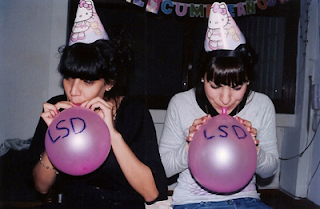Short Story: Diary of an Interesting Year
Source: The New Yorker Online- December 21, 2009
Author: Helen Simpson
Helen Simpson
Published work:
In-Flight Entertainment 2010
The London Ritz Book of Afternoon Tea: The Art and Pleasures of Taking Tea 2006
Constitutional 2005
Hey Yeah Right Get A Life 2000
Dear George 1995
Four Bare Legs in a Bed and Other Stories 1990
Prizes & awards:
2002 E. M. Forster Award
2001 Hawthornden Prize
1991 Somerset Maugham Award
1991 Sunday Times Young Writer of the Year Award
Helen Simpson was born in Bristol, and educated at Oxford University in England. She started off her career as a journalist, and has five years at Vogue on her resume. After her time at Vogue, Simpson left to focus more on her freelance career.
Diary of an Interesting Year
Simpson’s writing correlates well with the situations her character finds herself in. She portrays the voice through thought and dialogue extremely well and believable. The story is recounted in a diary format; therefore you only hear the voice of the protagonist. Having this format is perfect for a short fiction of only four pages. I find the diary style interesting and concise. There is only one voice for the reader to connect with.
The pacing is what Simpson excels at within this story. The story chronicles a year in the life of a women embarking on her 30th year of life. Each entry in her journal is short. The topics are all related but she bounces around a lot on her opinions and ideas. This keeps the story interesting and the readers’ attention alert.
The story idea itself is cliché. The story is set in the year 2040th. The story is a projection of what the future will hold. The future world has experienced a big collapse of technology and humanity. There is no long Internet, computer, cell phones, or safety. The protagonist and her husband are on the run from rats, dirt, a government who doesn't care and anyone else who is against them.
The story is interesting because it shows that even if the world is stripped down to what it has been built up to be, people's problems are still the same. In any kind of world climate people fight with their significant others, have opinions in relation to their governments, and are confronted with the dangers of their world.
In-depth look/excerpts from story:
Although the future is in turmoil, the same problems face humanity:
"Another quarrel with G. O.K., yes, he was right, but why crow about it? That’s what you get when you marry your tutor from Uni—wall-to-wall pontificating from an older man."
The loss of the internet/loss of modern day society and "common sense" provided by Internet:
"Really sick of bartering, but hard to know how to earn money since the Internet went down."
"Nobody else on the road will have a clue what to do now that we can’t Google it."
Whether you are rich or poor, or in the present or in the future, life's necessity can regularly be the same:
"Can’t sleep. Bites itching, trying not to scratch. Heavy thumps and squeaks just above, in the ceiling. Think of something nice. Soap and hot water. Fresh air. Condoms!"
The central idea of the story (clichéd but well worked throughout the whole):"
"The earth has enough for everyone’s need, but not for everyone’s greed” 

